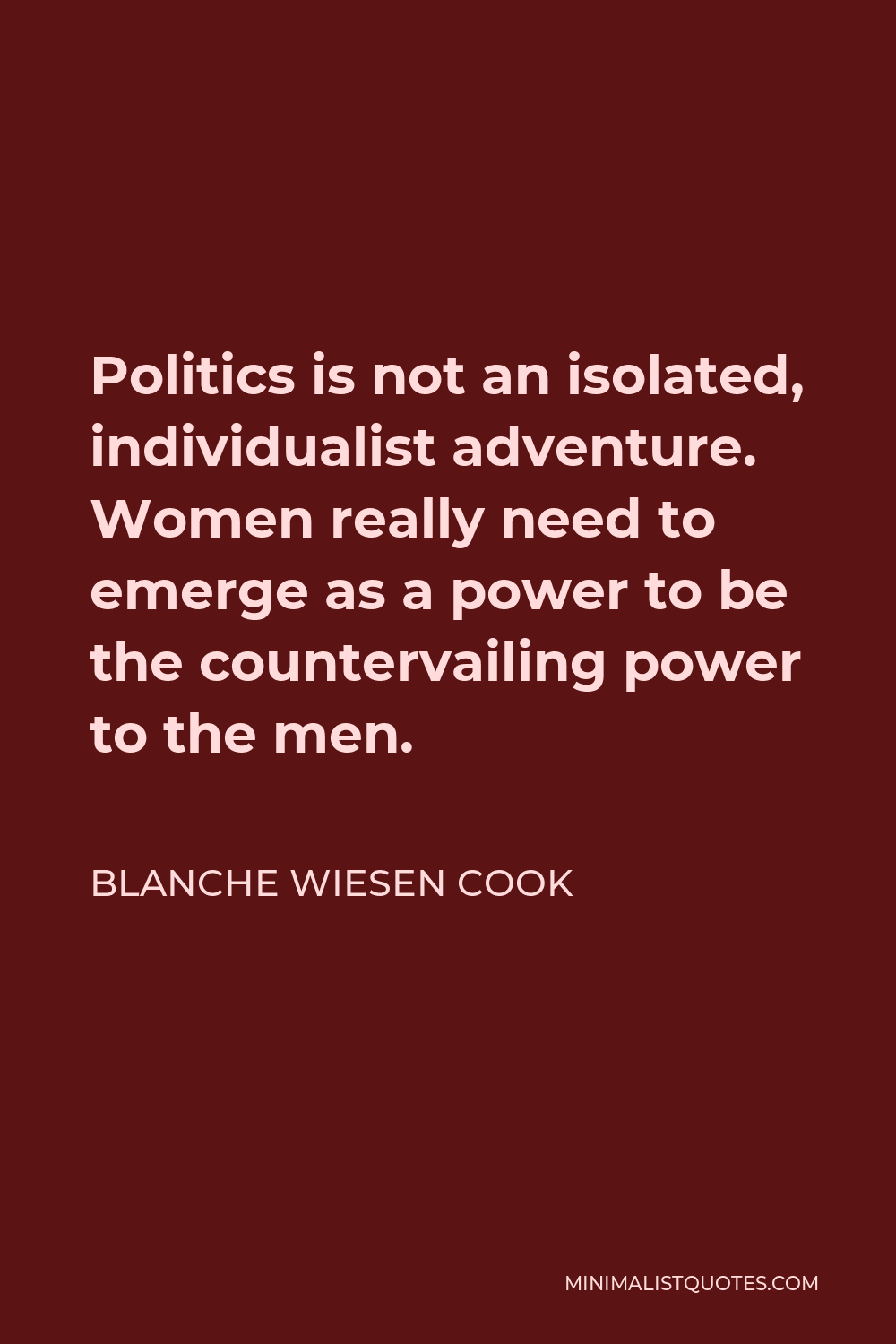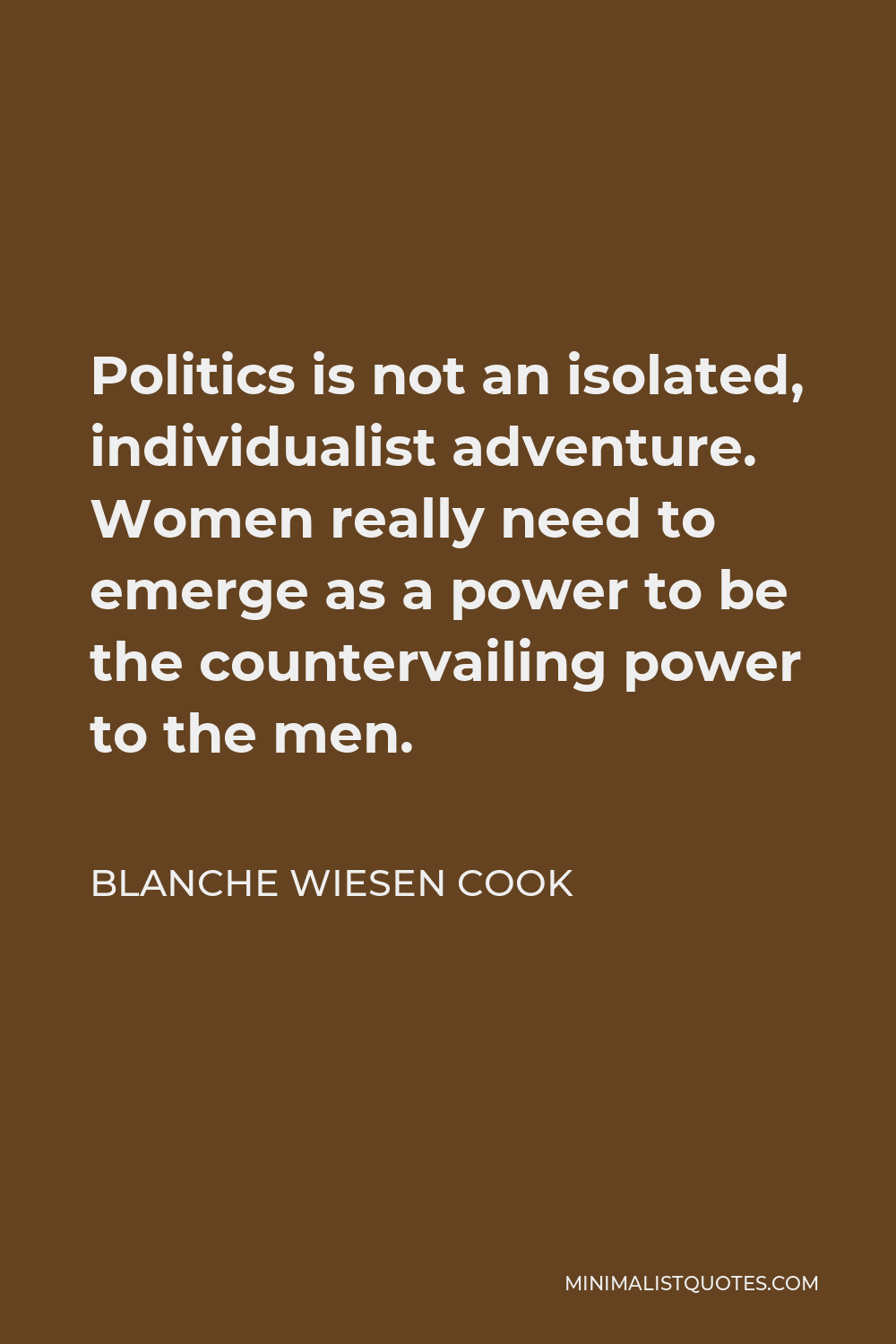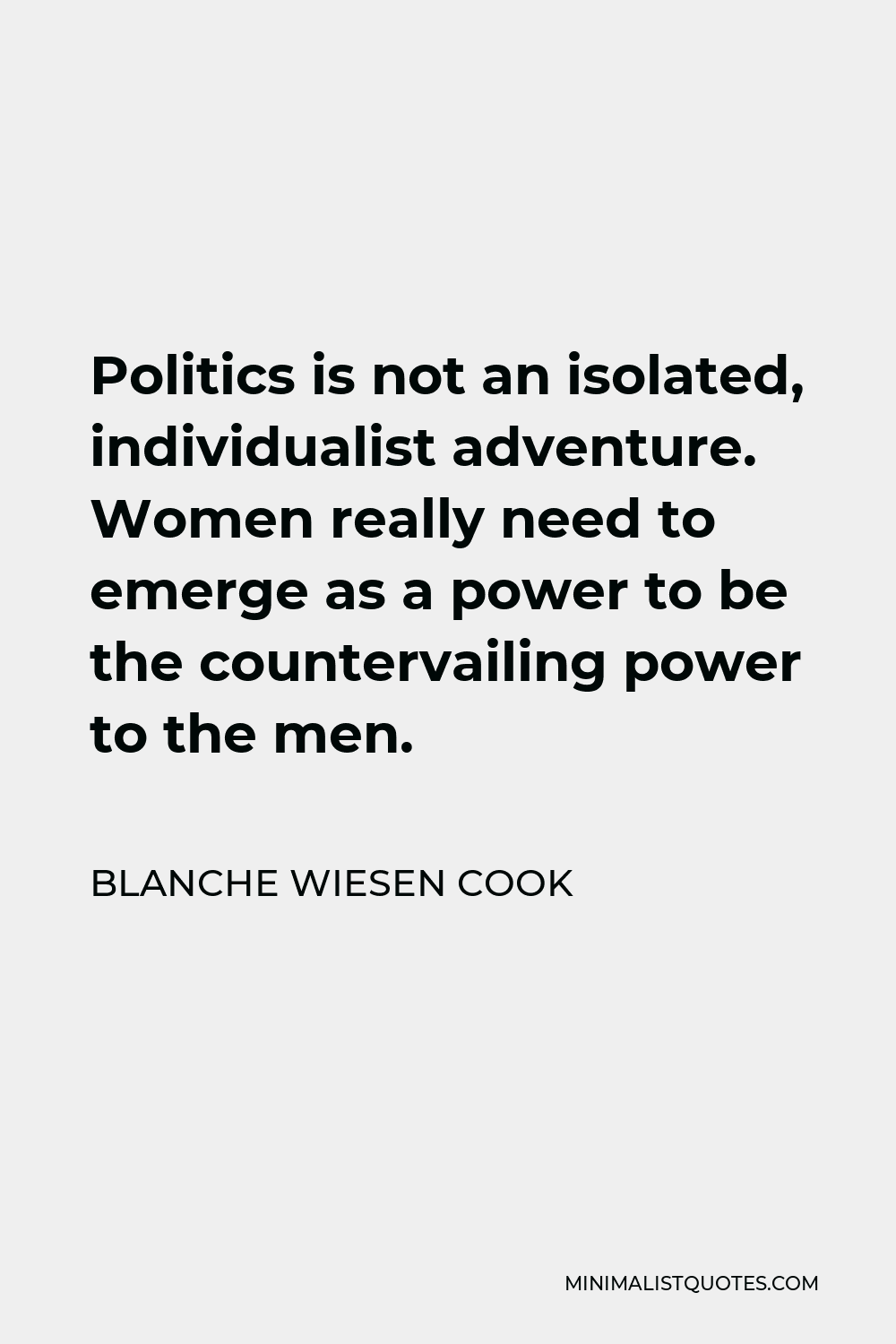But it’s also the beginning of another level of liberation for her]Eleanor Roosevelt], because when she returns to New York, she gets very involved in a new level of politics.
BLANCHE WIESEN COOKPolitics is not an isolated, individualist adventure. Women really need to emerge as a power to be the countervailing power to the men.
More Blanche Wiesen Cook Quotes
-





![Blanche Wiesen Cook Quote - But it’s also the beginning of another level of liberation for her]Eleanor Roosevelt], because when she returns to New York, she gets very involved in a new level of politics.](https://minimalistquotes.com/images/but-its-also-the-beginning-of-another-level-of-lib.jpg)
-






We need something like the League of Nations. We need to work together to fight fascism. We need embargoes against aggressor nations, and we need to name aggressor nations. All of which is a direct contradiction of FDR’s policies.
BLANCHE WIESEN COOK -





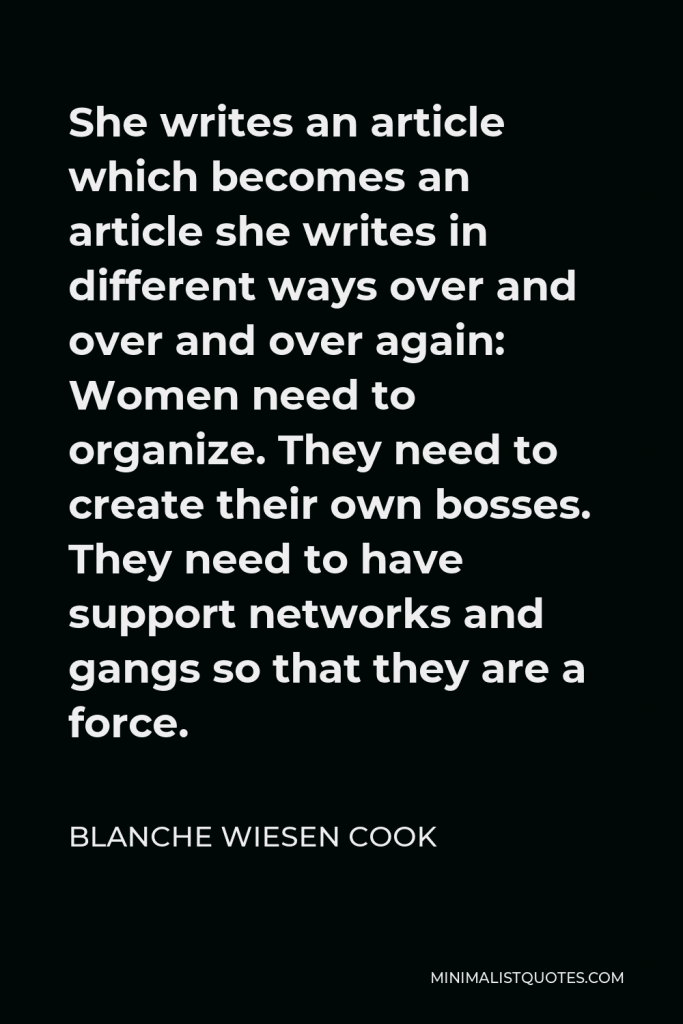

She writes an article which becomes an article she writes in different ways over and over and over again: Women need to organize. They need to create their own bosses. They need to have support networks and gangs so that they are a force.
BLANCHE WIESEN COOK -





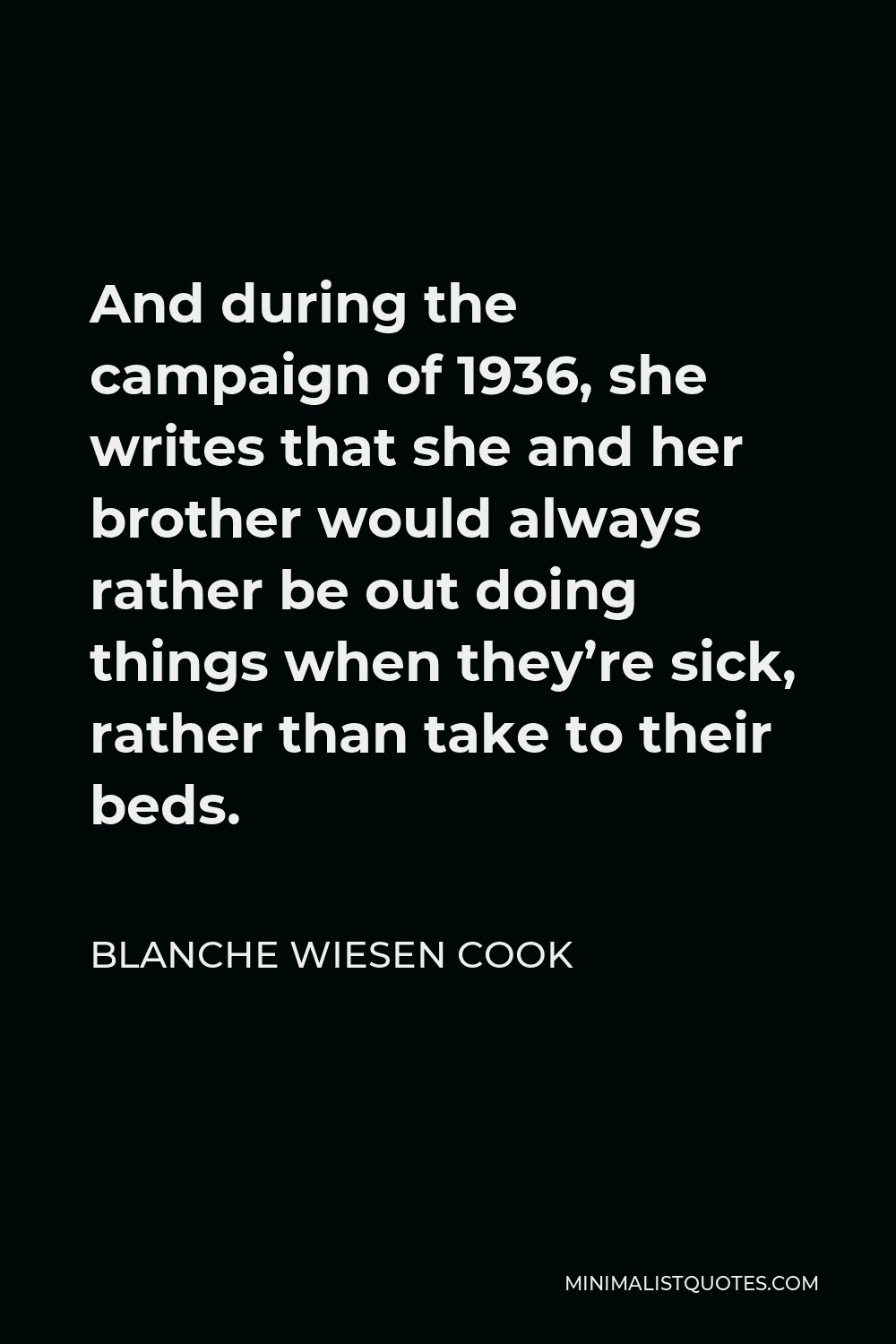
And during the campaign of 1936, she writes that she and her brother would always rather be out doing things when they’re sick, rather than take to their beds.
BLANCHE WIESEN COOK -





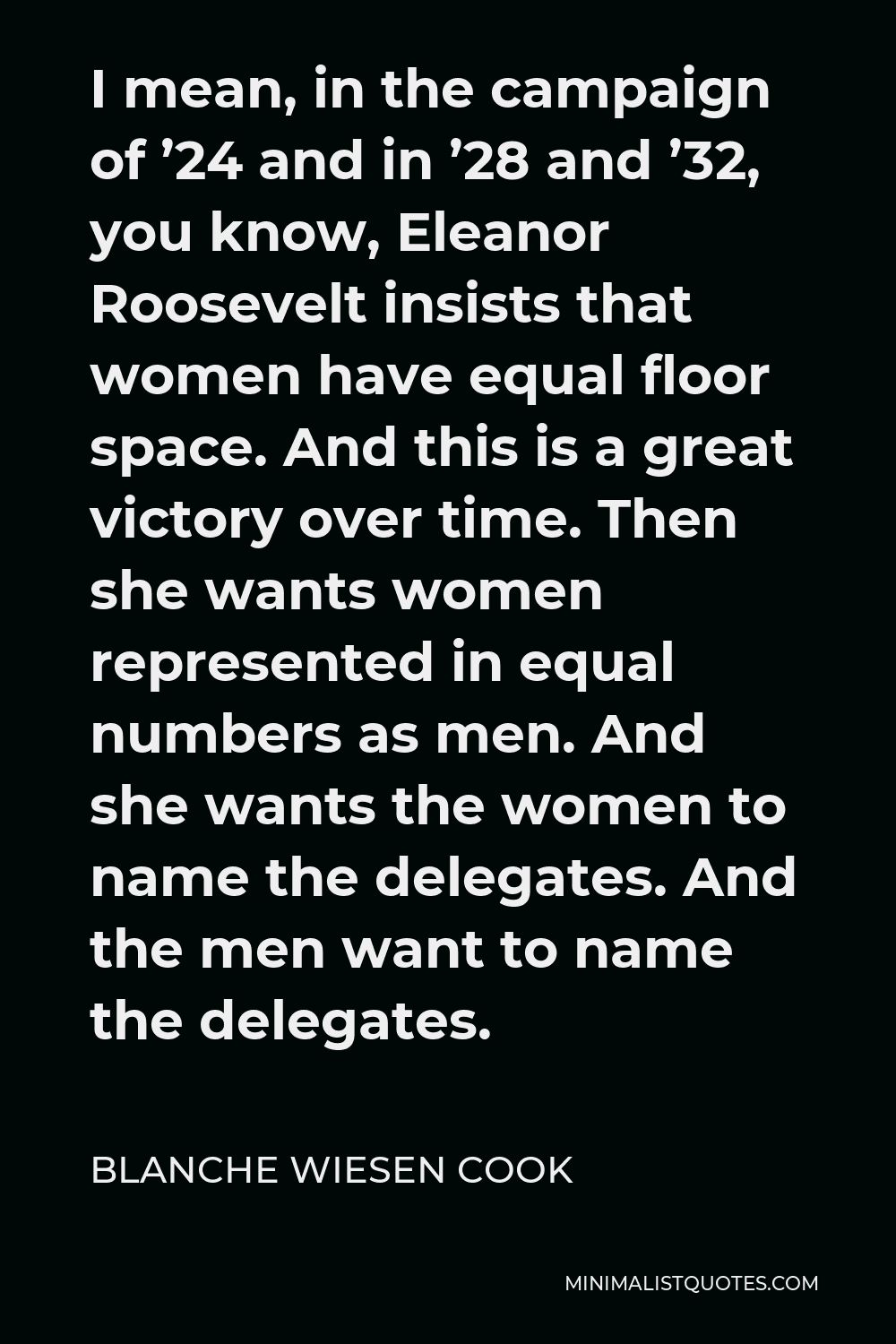
I mean, in the campaign of ’24 and in ’28 and ’32, you know, Eleanor Roosevelt insists that women have equal floor space. And this is a great victory over time. Then she wants women represented in equal numbers as men. And she wants the women to name the delegates. And the men want to name the delegates.
BLANCHE WIESEN COOK -





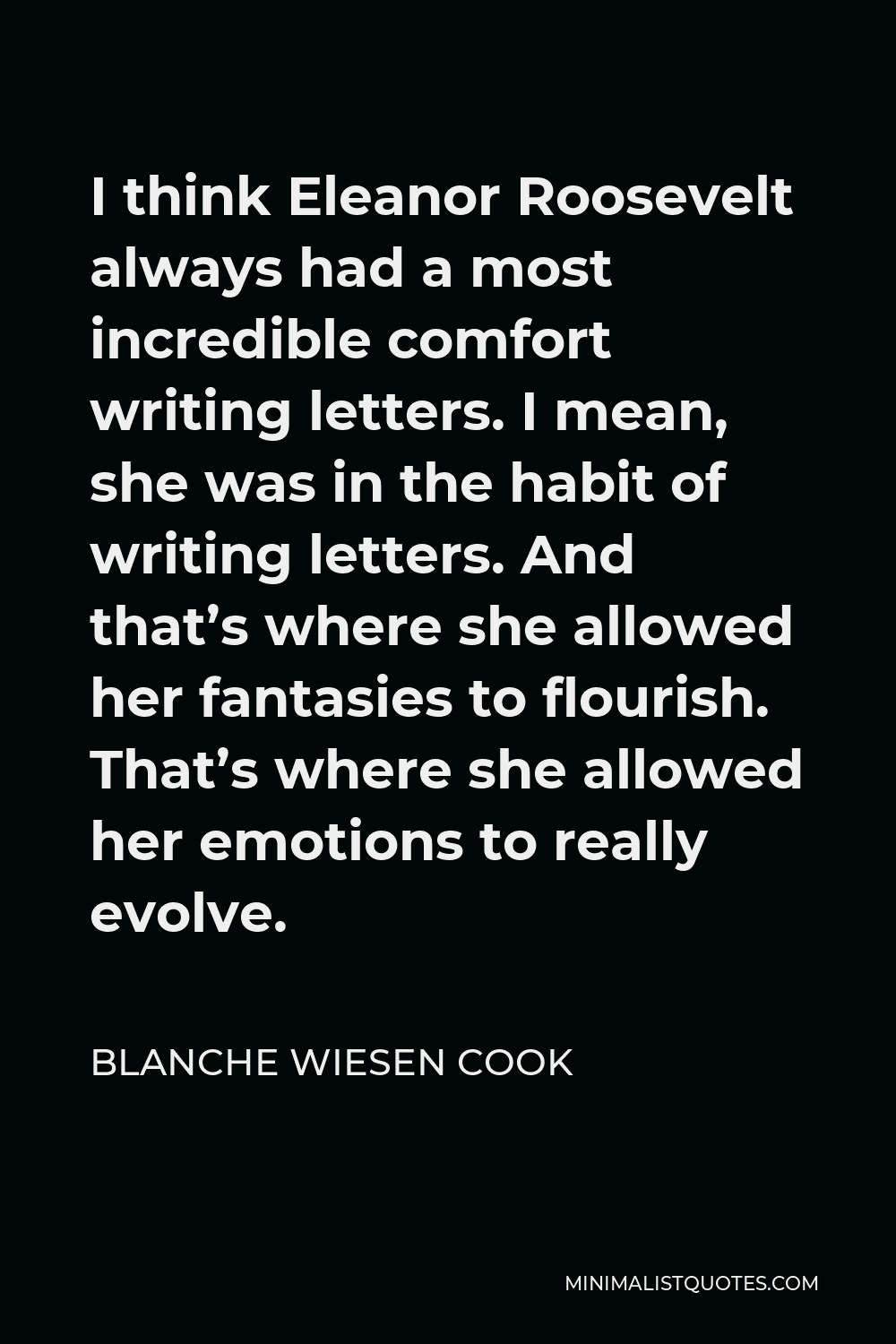
I think Eleanor Roosevelt always had a most incredible comfort writing letters. I mean, she was in the habit of writing letters. And that’s where she allowed her fantasies to flourish. That’s where she allowed her emotions to really evolve.
BLANCHE WIESEN COOK -





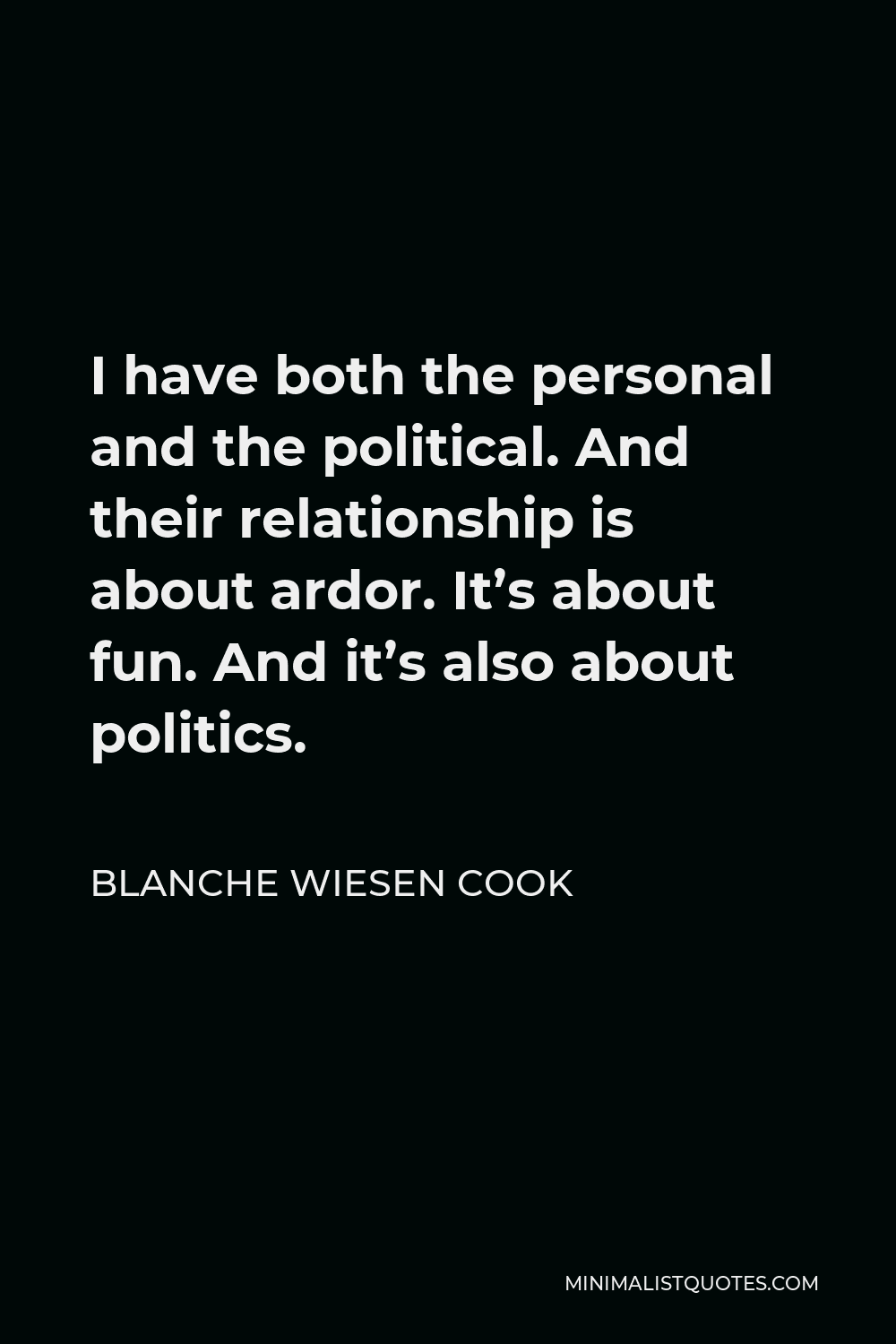
I have both the personal and the political. And their relationship is about ardor. It’s about fun. And it’s also about politics.
BLANCHE WIESEN COOK -





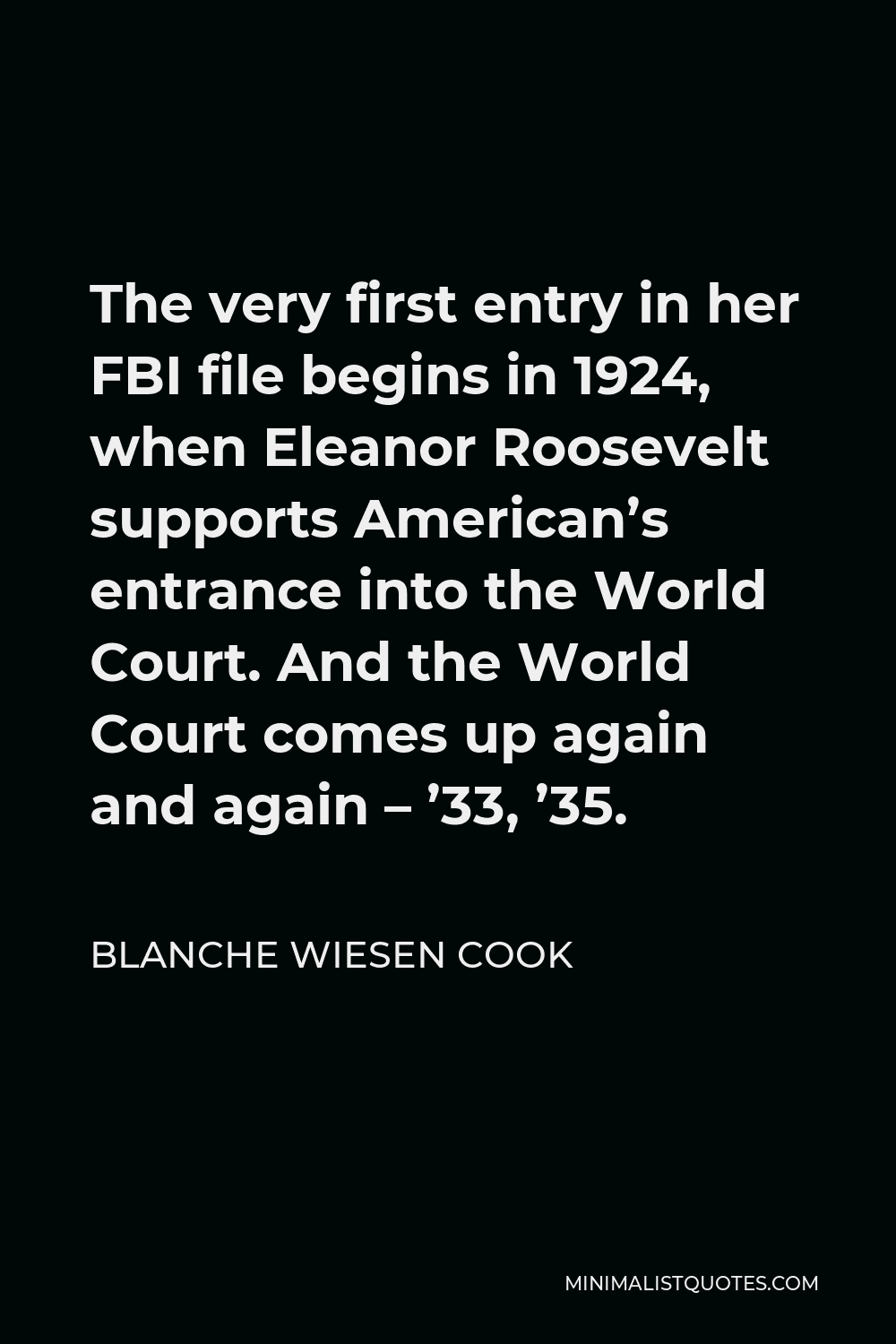
The very first entry in her FBI file begins in 1924, when Eleanor Roosevelt supports American’s entrance into the World Court. And the World Court comes up again and again – ’33, ’35.
BLANCHE WIESEN COOK -





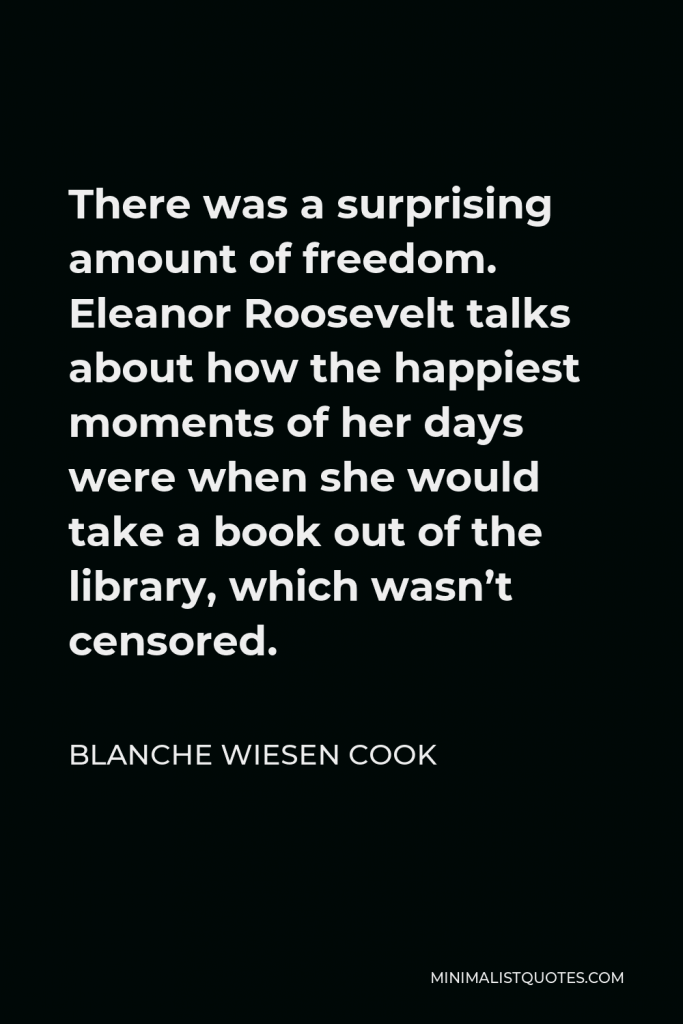

There was a surprising amount of freedom. Eleanor Roosevelt talks about how the happiest moments of her days were when she would take a book out of the library, which wasn’t censored.
BLANCHE WIESEN COOK -





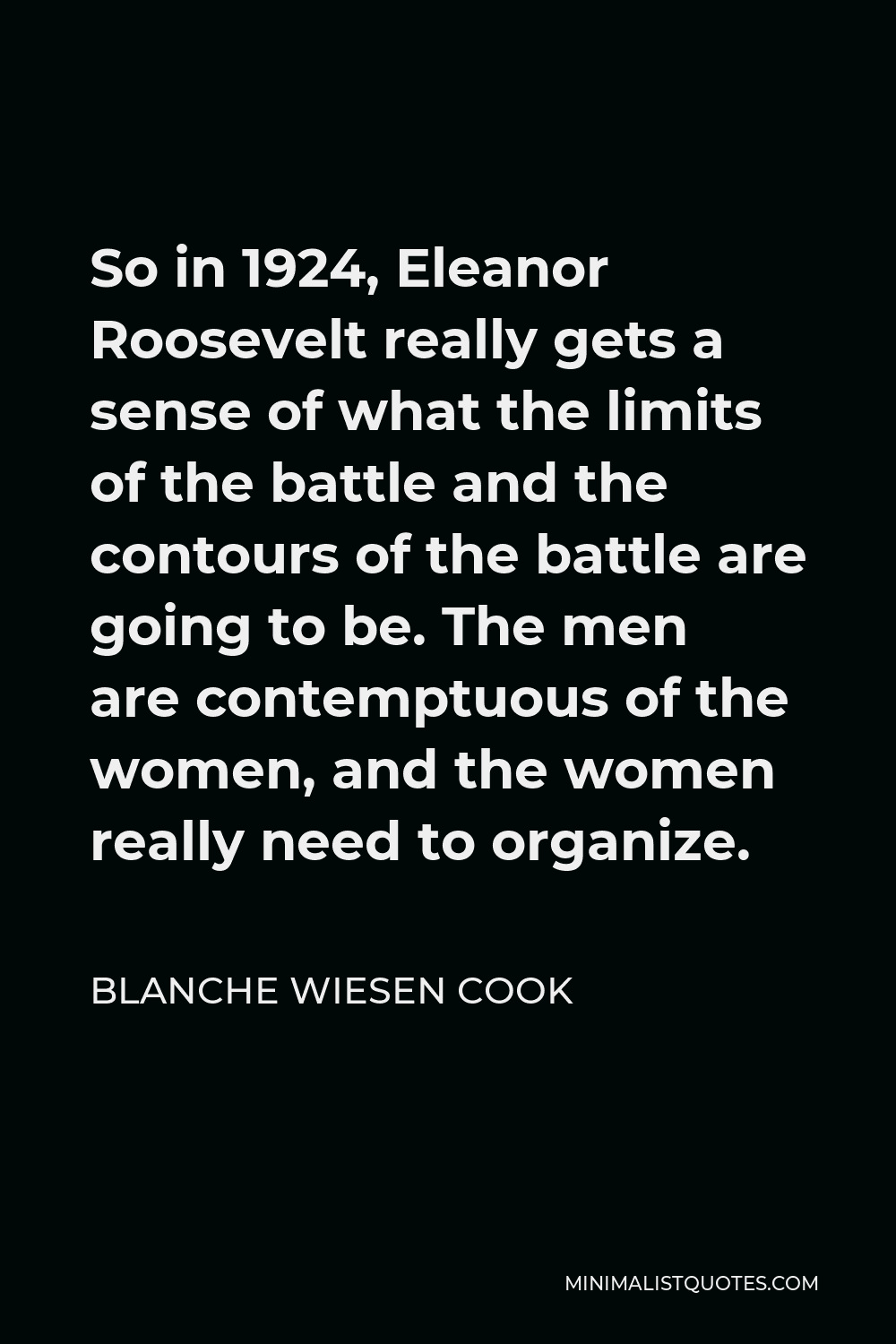
So in 1924, Eleanor Roosevelt really gets a sense of what the limits of the battle and the contours of the battle are going to be. The men are contemptuous of the women, and the women really need to organize.
BLANCHE WIESEN COOK -





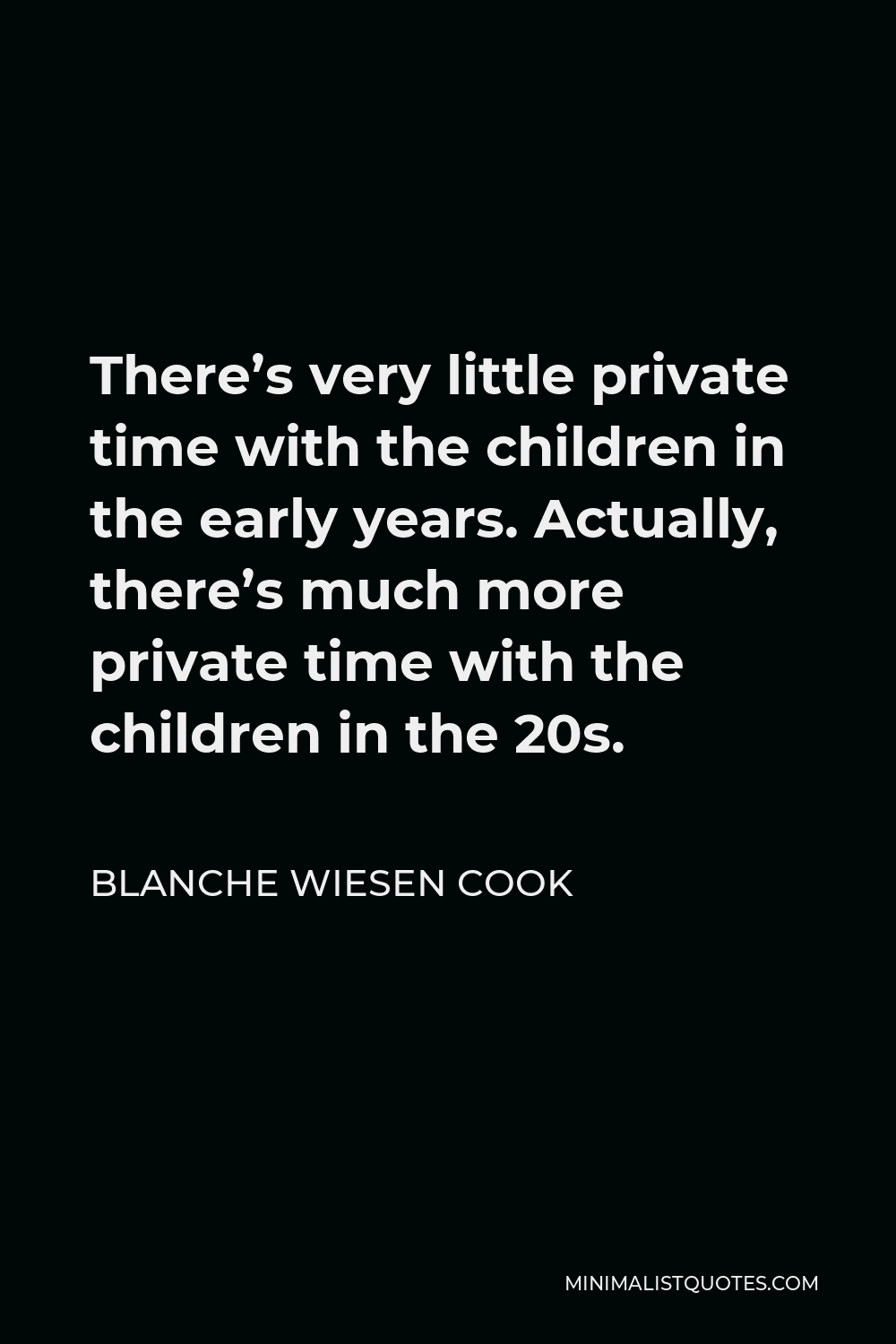
There’s very little private time with the children in the early years. Actually, there’s much more private time with the children in the 20s.
BLANCHE WIESEN COOK -





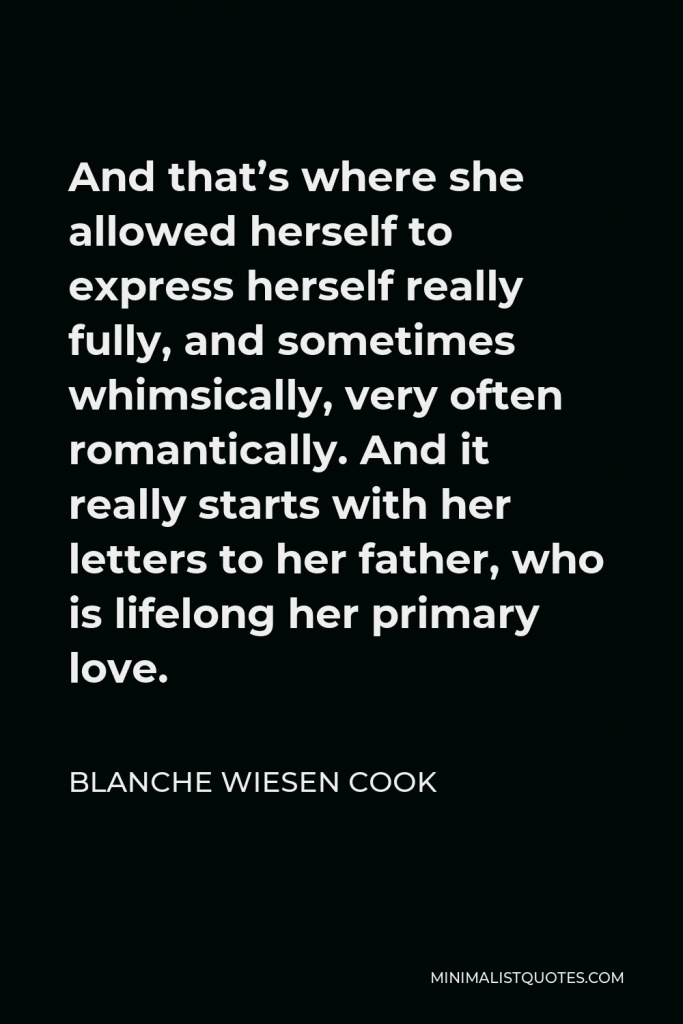

And that’s where she allowed herself to express herself really fully, and sometimes whimsically, very often romantically. And it really starts with her letters to her father, who is lifelong her primary love.
BLANCHE WIESEN COOK -





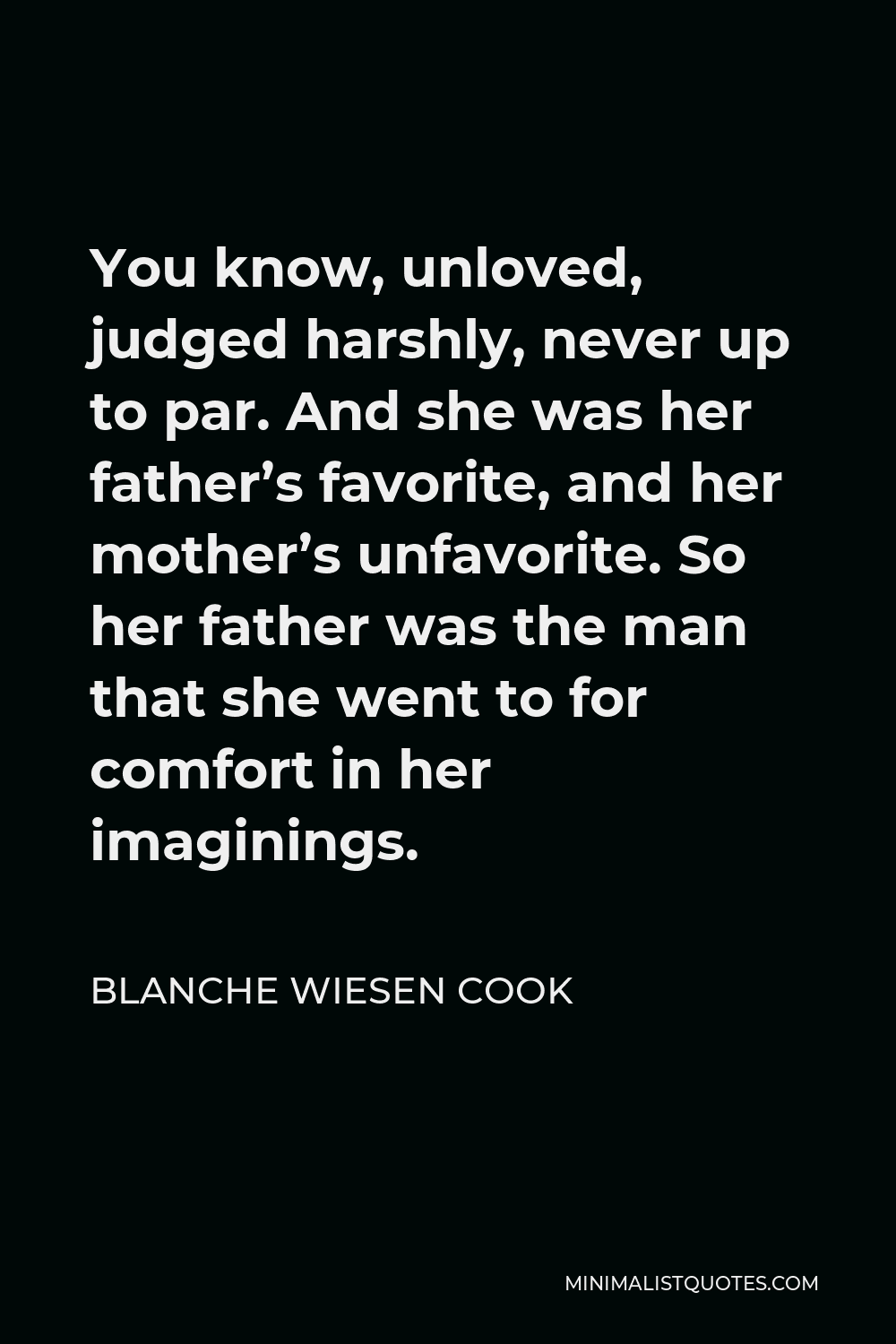
You know, unloved, judged harshly, never up to par. And she was her father’s favorite, and her mother’s unfavorite. So her father was the man that she went to for comfort in her imaginings.
BLANCHE WIESEN COOK -





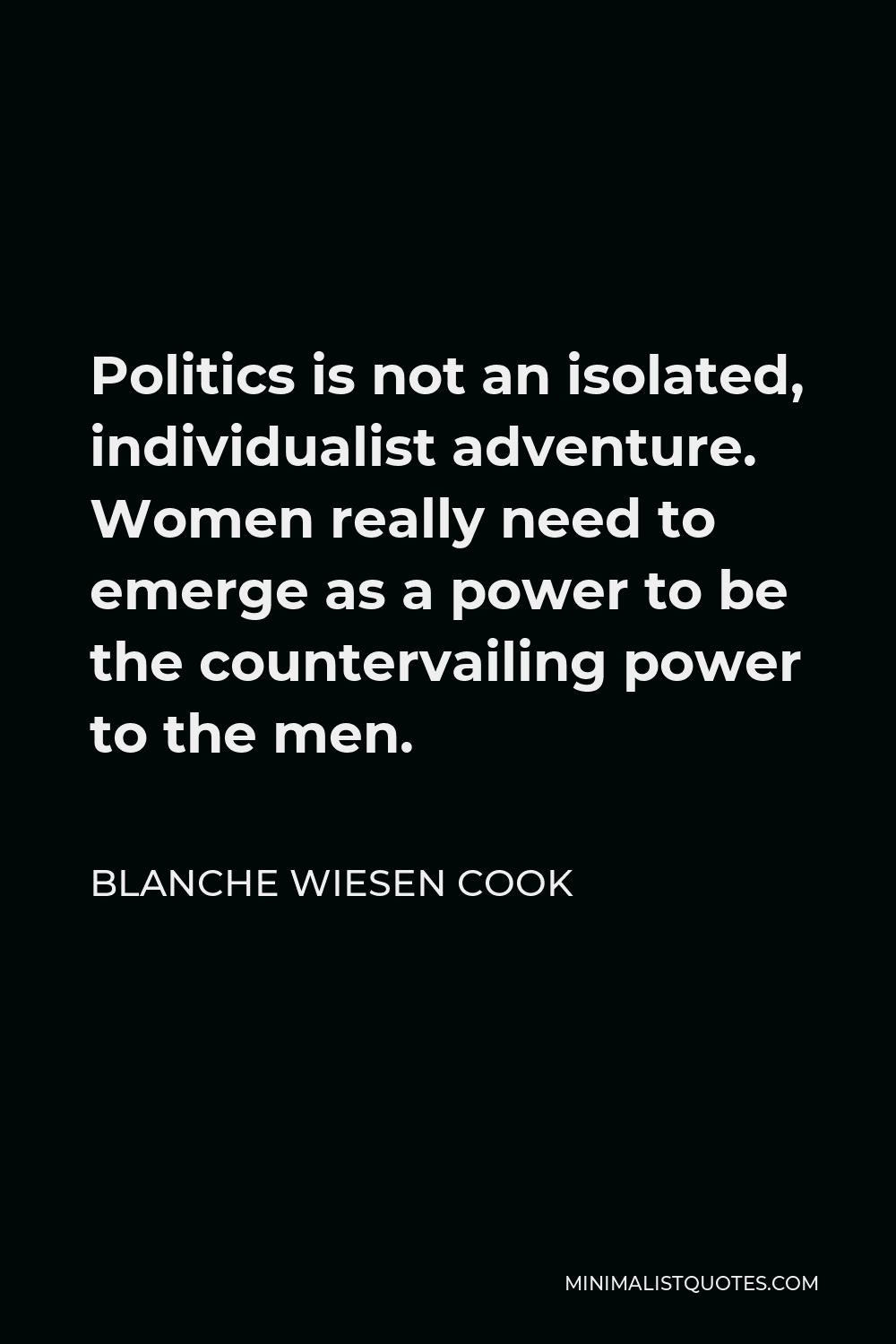
Politics is not an isolated, individualist adventure. Women really need to emerge as a power to be the countervailing power to the men.
BLANCHE WIESEN COOK -





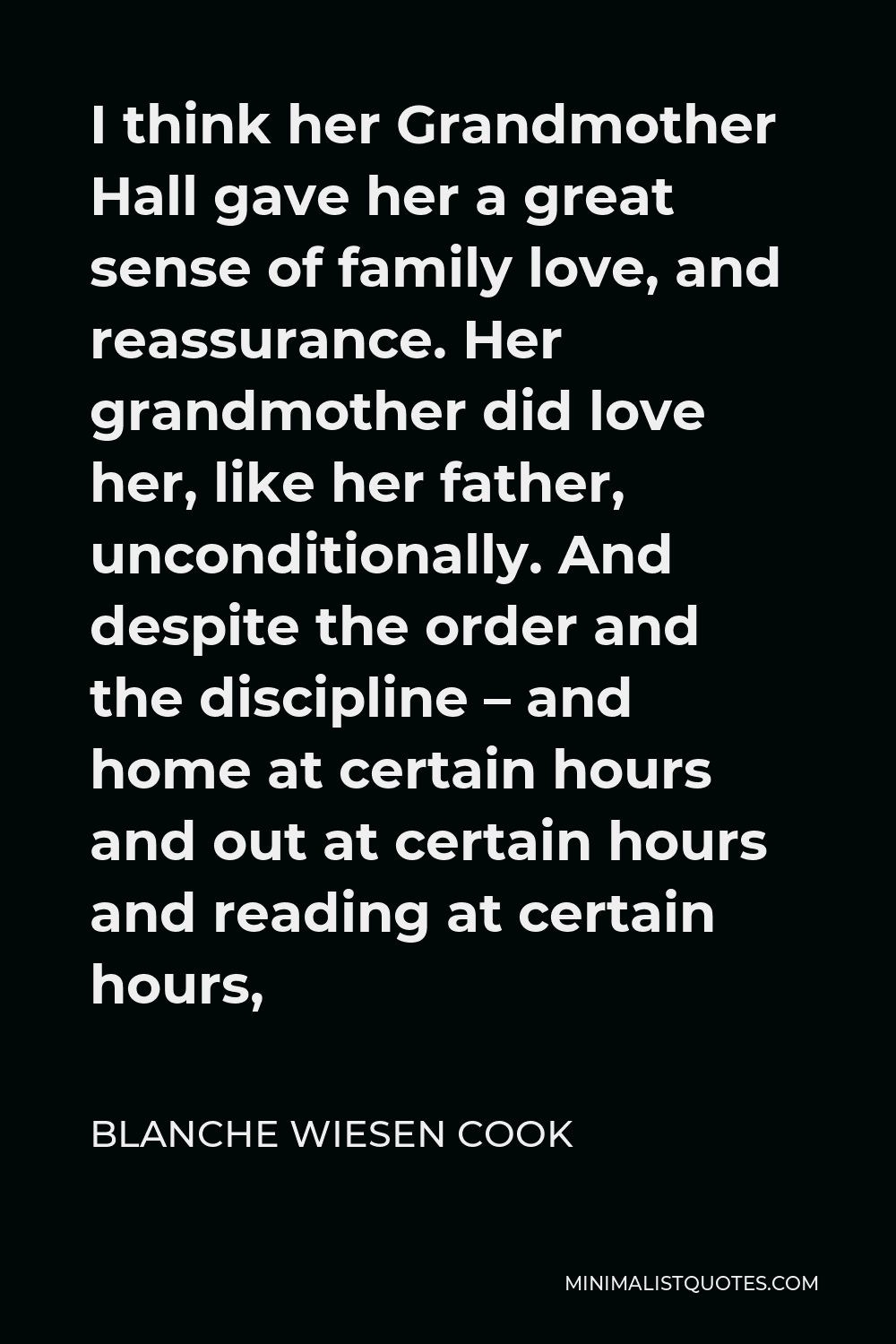
I think her Grandmother Hall gave her a great sense of family love, and reassurance. Her grandmother did love her, like her father, unconditionally. And despite the order and the discipline – and home at certain hours and out at certain hours and reading at certain hours,
BLANCHE WIESEN COOK -





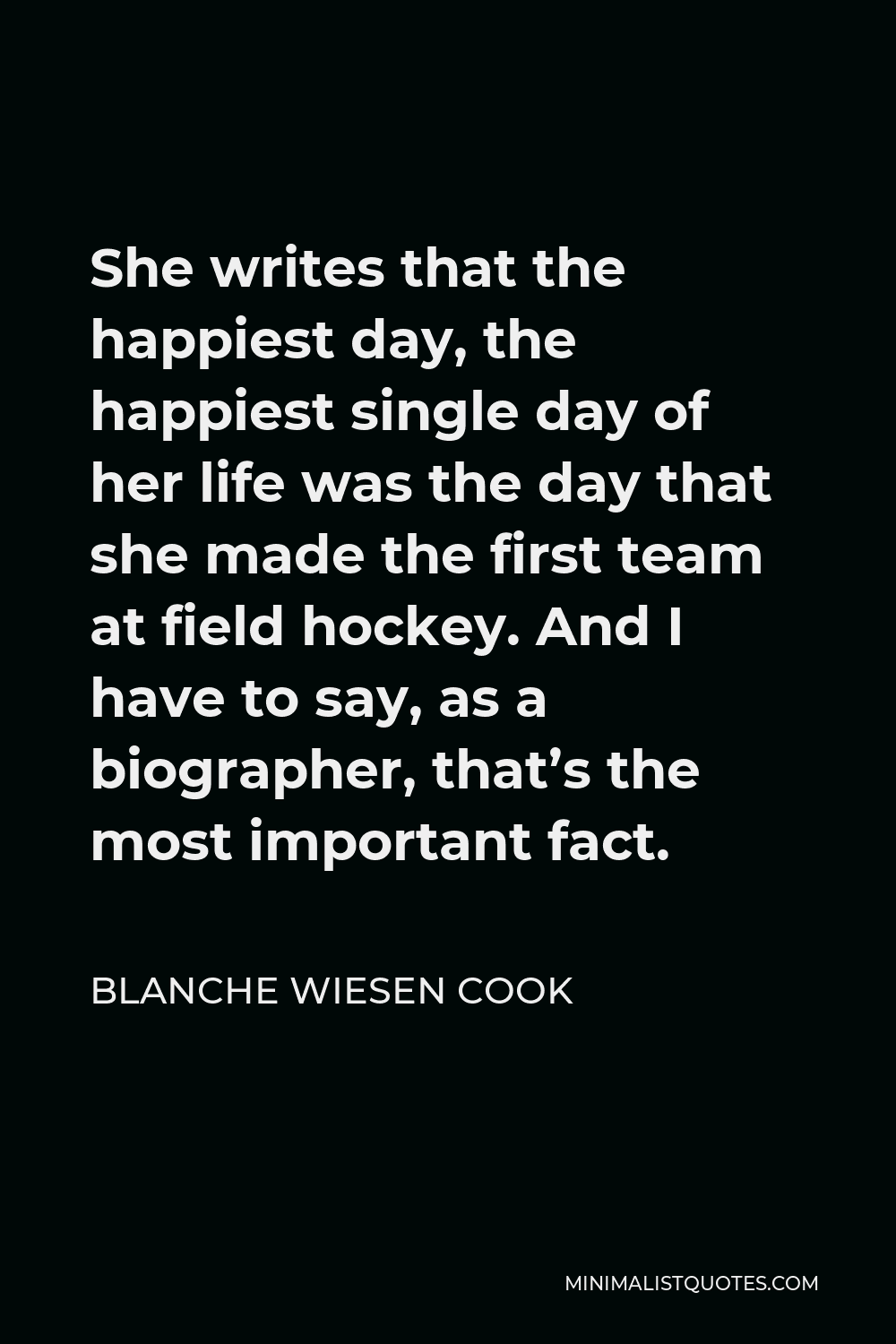
She writes that the happiest day, the happiest single day of her life was the day that she made the first team at field hockey. And I have to say, as a biographer, that’s the most important fact.
BLANCHE WIESEN COOK


